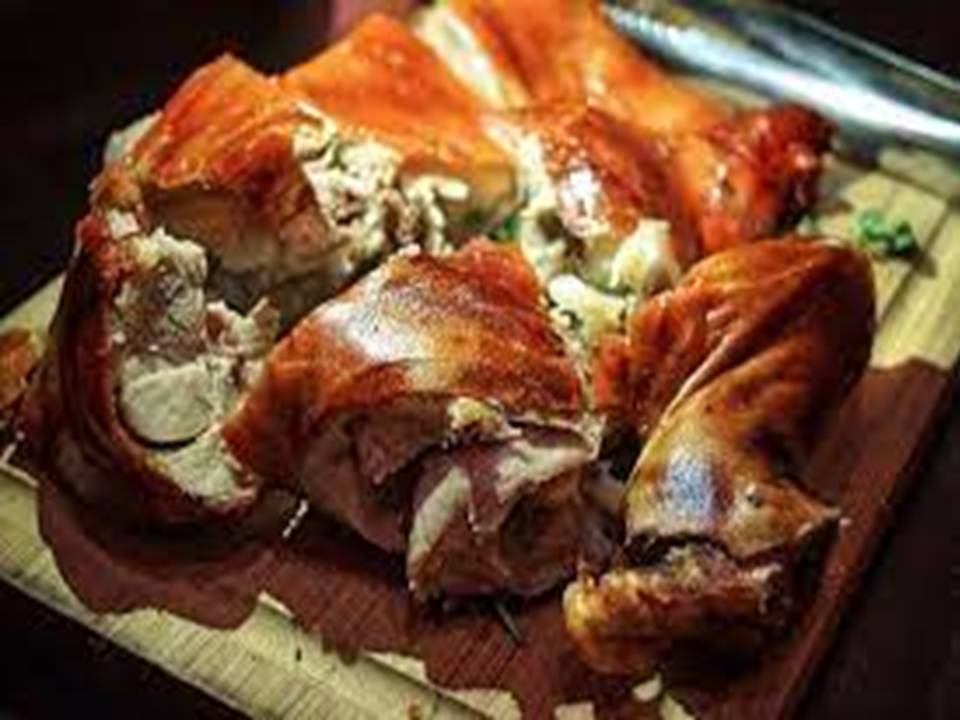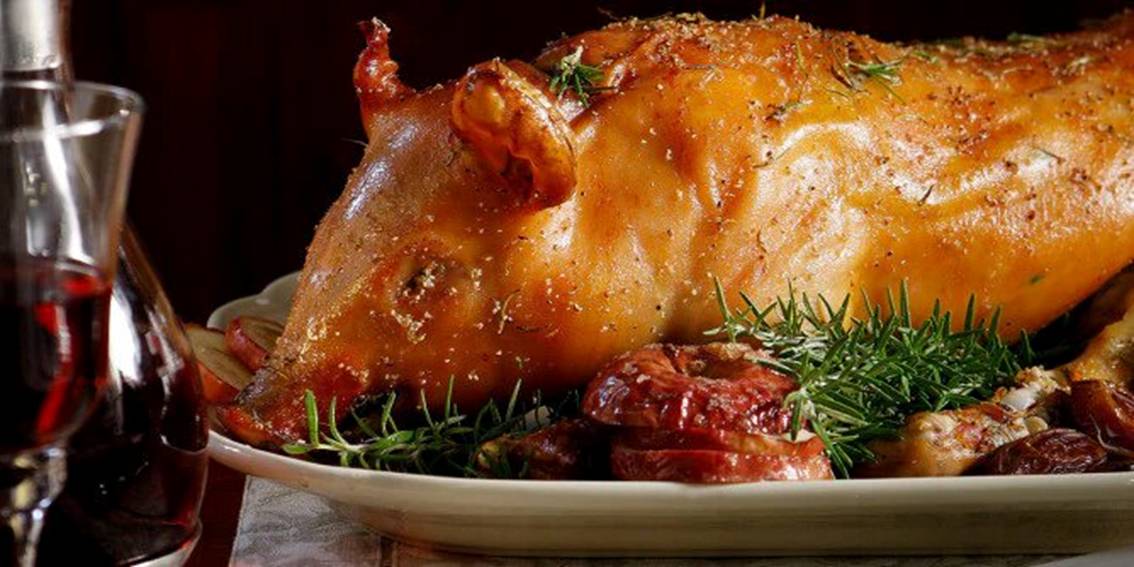Gourounia: A Slow Cook Dish in a Wood Oven
The Gourounia Dance Festival in the village of Orounda is a special custom and one of the most traditional celebrations of Cypriot rural life. This custom has survived for many decades and remains an important part of Cyprus’s cultural heritage. The Gourounia Dance is not just a celebration but also a way to preserve folk traditions, rural culture, and community spirit.
On Friday, September 20, Orounda will host an evening full of festivities. Evdokia Kadi and Nikolas Pissias will set the mood with live music. Of course, no such evening would be complete without delicious food.
History and Origin of the Custom
The Gourounia Dance Festival originates from the traditional rural life of Cyprus, where pig farming was a key activity for farmers. Pigs were extremely important to the household economy, providing meat, fat, and skin, which had multiple uses in daily life. The slaughter of a pig was a significant event, often accompanied by celebrations and rituals.
The Gourounia Dance Festival originates from the traditional rural life of Cyprus, where pig farming was a key activity for farmers.

Pigs were extremely important to the household economy, providing meat, fat, and skin, which had multiple uses in daily life. The slaughter of a pig was a significant event, often accompanied by celebrations and rituals.
The Importance of Gourounia in Traditional Cypriot Life
Pigs were one of the most important animals for Cypriot farming families. Raising and caring for pigs were critical activities, as they provided food and resources for survival. Pork was a staple in the Cypriot diet, while pig fat was used for cooking and making products like sausages and lountza (cured pork loin). The skin was also used to create various everyday items.
The slaughter of a pig was a crucial moment in the agricultural year. It was not just a practical event but also a symbolic one, offering the community a chance to come together, celebrate, and strengthen bonds.
The Process of Slaughter and Celebration
The slaughter of the pig was a ritual process involving the entire family. Each member had a specific role, from cleaning and preparing the animal to sorting its parts for cooking and other uses. The event was followed by feasting and dancing, with the village gathering to celebrate.
The Gourounia Dance was the highlight of the festival. Locals danced around the pig, singing traditional songs. Men and women wore traditional costumes, and the celebration continued late into the night with food, drinks, and music.
The Modern Form of the Custom
Today, the Gourounia Dance in Orounda has become a major cultural event, attracting both locals and visitors from across Cyprus. While pig farming has declined and rural life has changed, the custom remains a symbol of tradition and community.
The festival now includes activities like traditional music and dance performances, exhibitions of local products, and the preparation of traditional pork dishes such as sausages and lountza. Young generations actively participate in the preparations, ensuring the custom stays alive and relevant.
The Gourounia Dance as a Means of Preserving Tradition
The Gourounia Dance is more than just a celebration; it is a way for the people of Orounda to preserve their cultural identity. Through this custom, villagers reconnect with their past, keeping the values and traditions of their ancestors alive. It also strengthens community ties and promotes social cohesion.
In modern Cypriot society, where traditional lifestyles have changed significantly, the Gourounia Dance serves as a reminder of the importance of rural life, traditional professions, and community cooperation.
Event Details
Entrance Fee: €15 (includes food and 1 drink)
Children under 12: €5
Children under 6: Free
Pre-booking is required until September 18, 2023. Contact 99760907 to reserve your spot.
Conclusion
The Gourounia Dance in Orounda is a living tradition that bridges the past and present. It celebrates community, rural culture, and cultural heritage. By continuing this custom, the people of Orounda preserve their identity and strengthen their social and cultural roots. The festival offers a unique experience for both locals and visitors, showcasing the enduring spirit of Cypriot tradition.
You May Also Like This
The story of Kleftiko: https://anatolikilemesou.com/?p=6346




